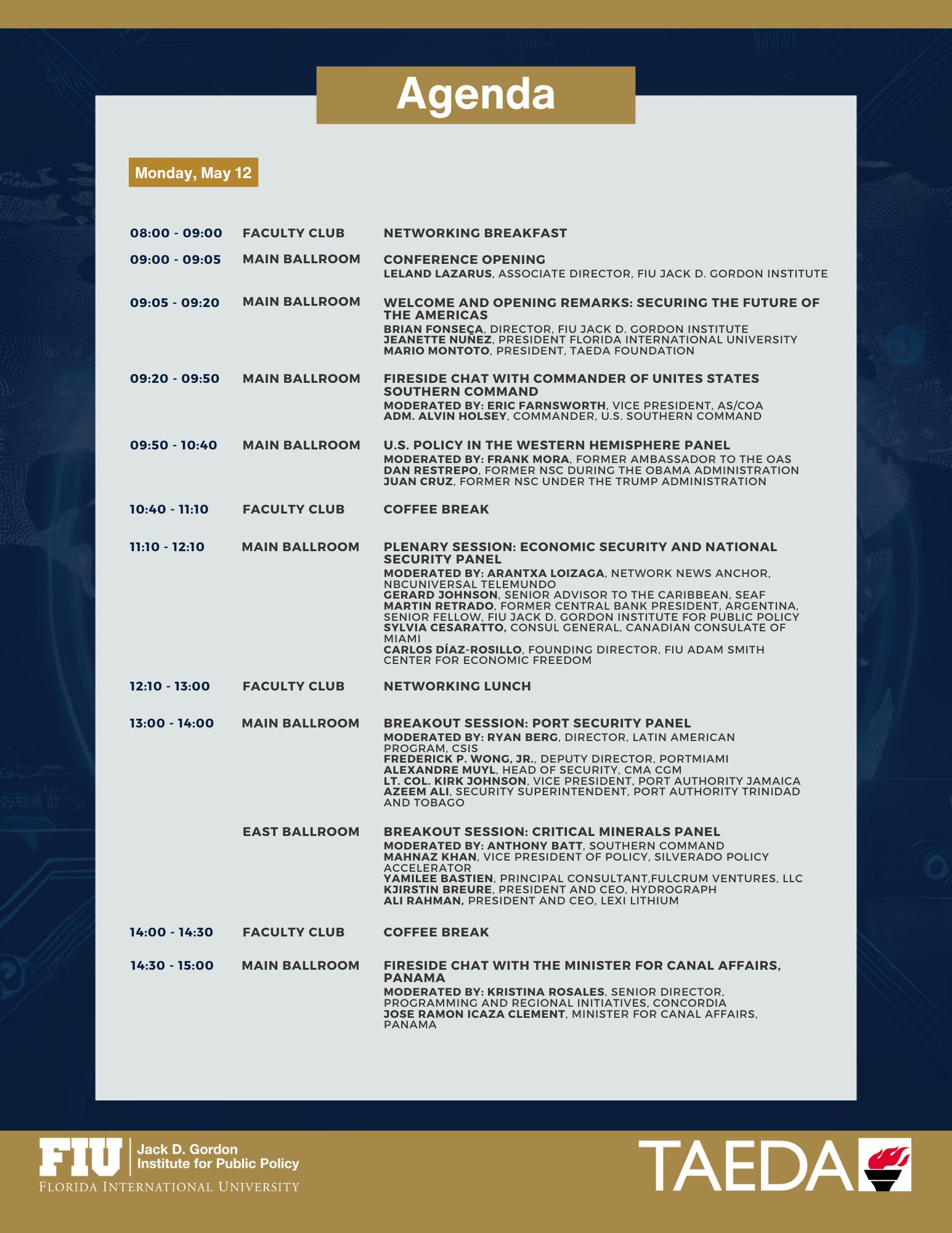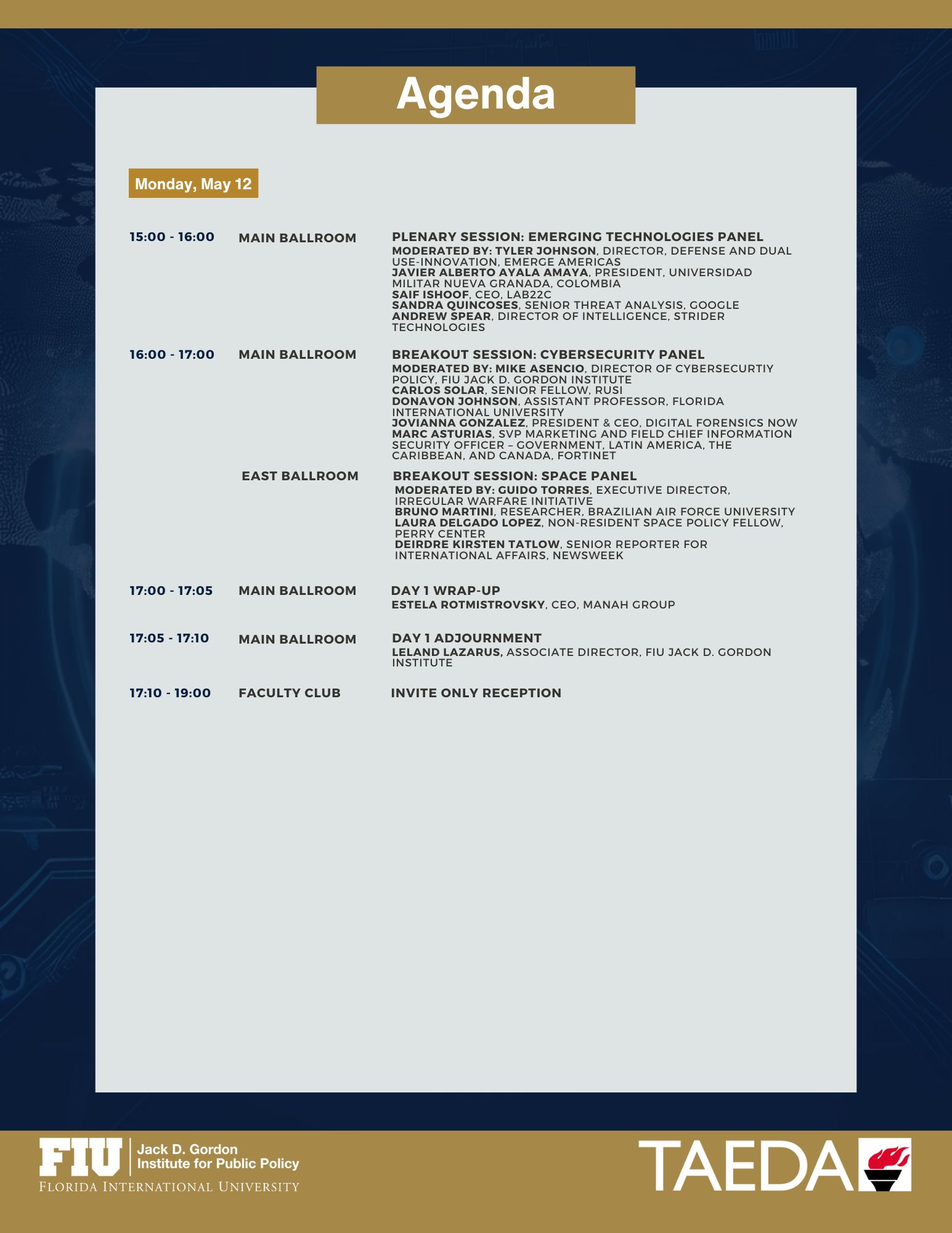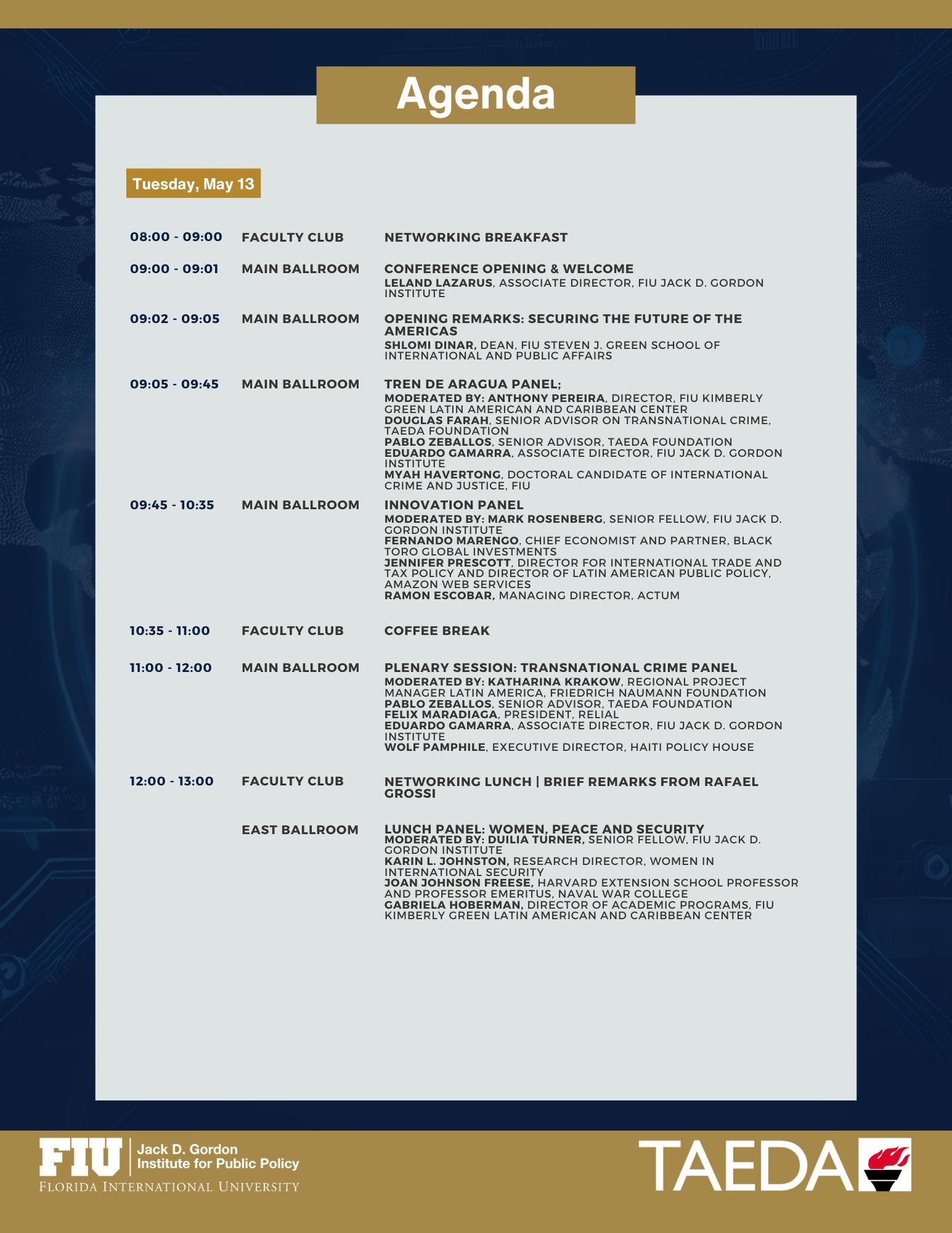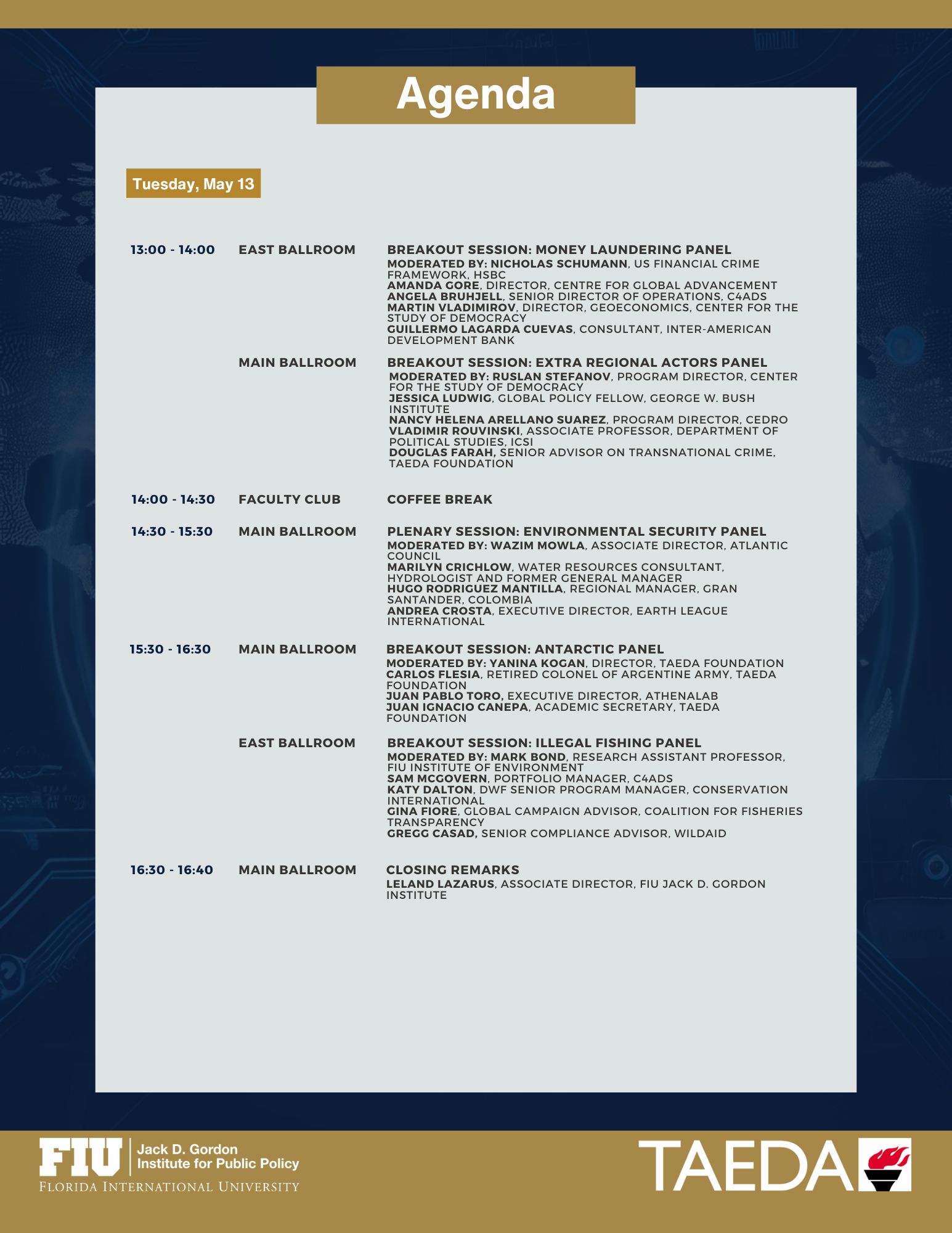2025 Agenda
Celebrating the 10th Annual Hemisphere Security Conference
Join us in Miami—the gateway to the Americas— on May 12 and 13 for Florida International University’s premier national security event addressing the region’s most critical challenges.
HSC features distinguished thought leaders, including senior military officials, policymakers, and industry executives, providing unparalleled insights into the geopolitical landscape and security threats shaping the region.
Check out the full 2025 Hemispheric Security Conference Agenda below:



